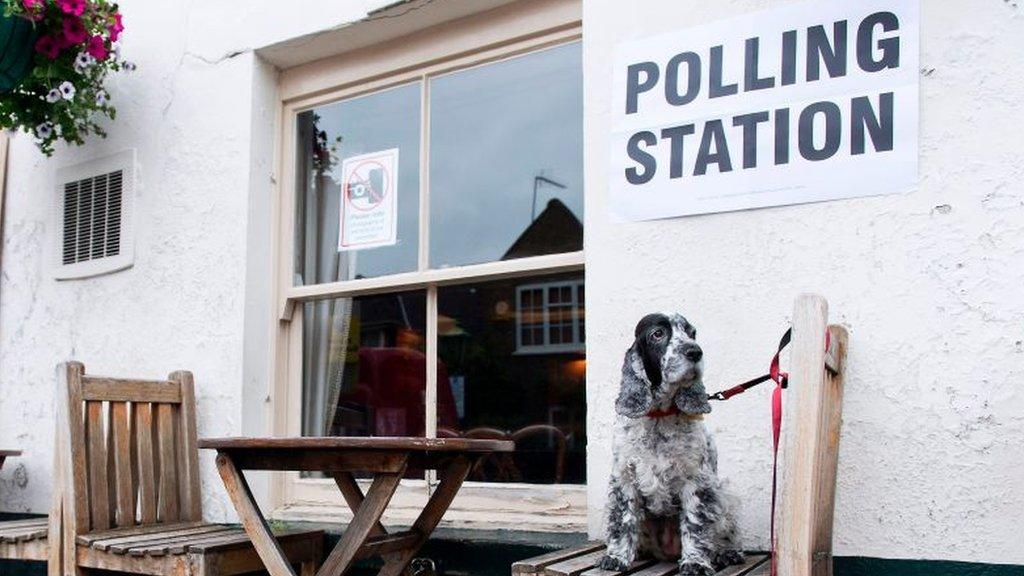Election 2019, Your Questions Answered: The election in Scotland
- Published
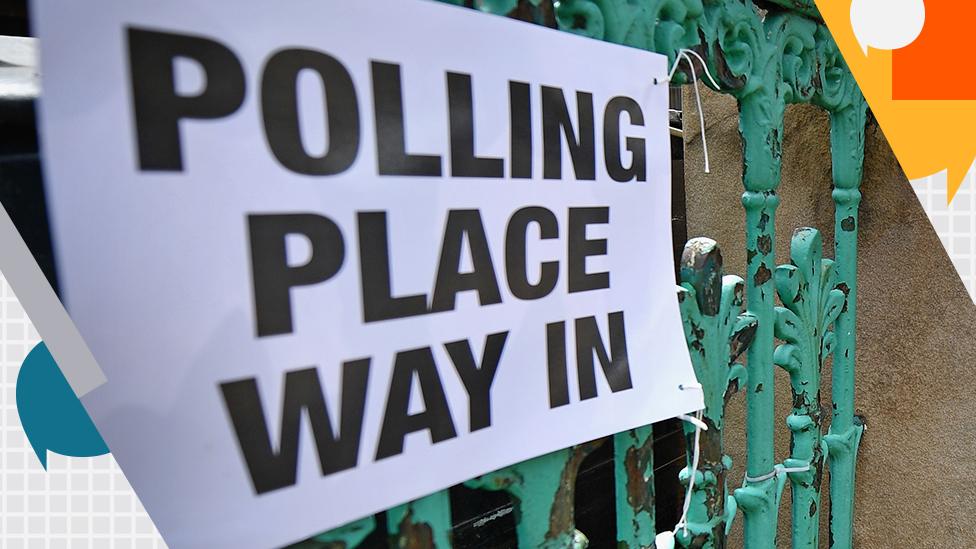
With polling day fewer than four weeks away, our readers have been sending in questions on the election in Scotland.
Here, we answer a selection about the politics north of the border.
Can a member of the SNP stand for election in England, Wales or Northern Ireland? - Alex Davidson, Tayport
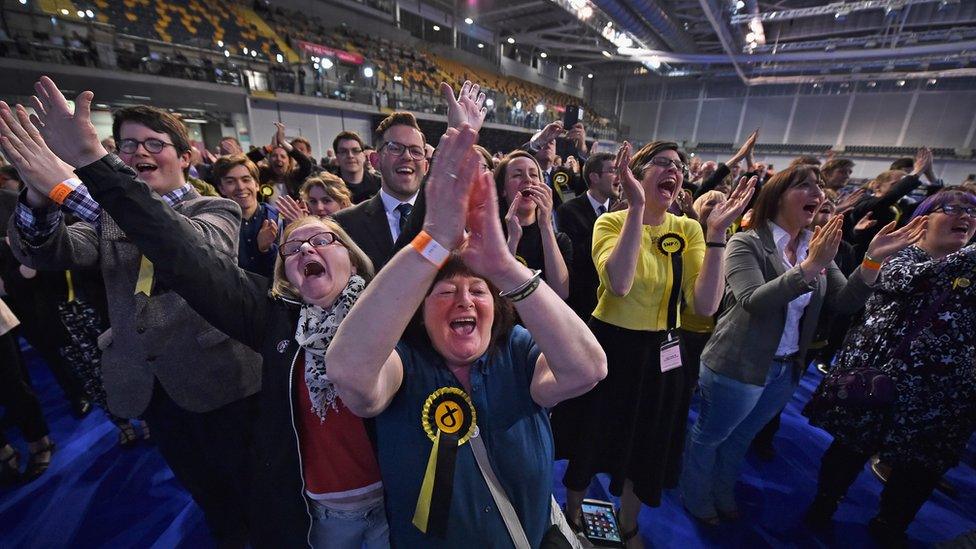
The SNP have had a lot to celebrate in recent elections
There's nothing to stop the Scottish National Party standing for election elsewhere in the UK. But they never have.
Their defining goal is independence for Scotland, which they would want to be decided through a referendum in Scotland.
When Nicola Sturgeon was asked in an interview whether the SNP would run a candidate in England, she joked that she was "tempted".
The 2016 interview in the Big Issue reported the first minister as saying, external: "There are a lot [of people] in England - a lot who contact me - who feel completely disenfranchised that there is nobody speaking up for them. Our London branch is booming at the moment."
The tongue-in-cheek comment prompted a further article in the Guardian, external, where a party spokesperson confirmed the SNP remained "firmly focused on working for Scotland" and had "no plans" to field candidates anywhere else in the UK.
What is the smallest constituency by population and by area? - Andy Dawson, Derbyshire
The smallest constituency in the UK is Islington North at 7.35 sq km (2.84 sq miles) - that seat has been held by Labour leader Jeremy Corbyn since 1983. Scotland's smallest is Glasgow North at 16.86 sq km (6.51 sq miles).
The largest constituency in the UK is in Scotland. It's the Ross, Skye and Lochaber constituency - measuring approximately 12,000 sq km (4633.23 sq miles).
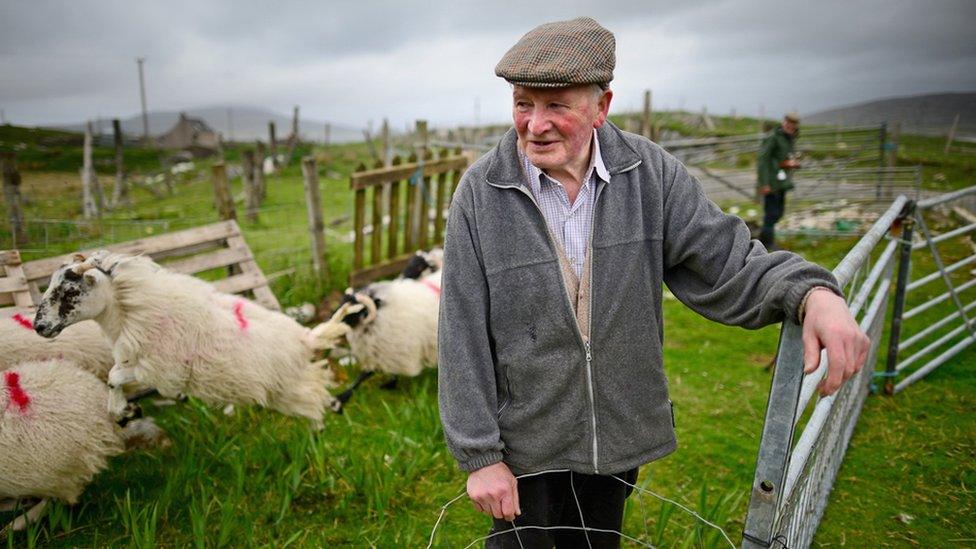
A farmer on Harris, which is part of the Na h-Eileanan an Iar (Western Isles) constituency
In population terms, the smallest constituency in the UK is in Scotland - 26,830 people live in the Na h-Eileanan an Iar (Western Isles) constituency, external.
By population, the UK's largest constituency is West Ham, in Greater London, where 188,275 people live, external. Scotland's largest constituency is Linlithgow and East Falkirk, which is home to 119,251 people, external.
That's the number of people who live in each constituency - which is different to the number of people who are able to vote in each constituency.
The average electorate in English constituencies is 72,200, but in Scotland it is 67,200. In Northern Ireland it's 68,300 and in Wales it is 56,000, according to the Office for National Statistics, external.
Protected constituencies
In 2017, the parliamentary constituency with the smallest-sized electorate in 2017 was Na h-Eileanan an Iar (Western Isles), at 21,200 and the largest electorate at 109,900 was the Isle of Wight, external.
These unusual electoral sizes are explained by these being island constituencies - both are protected constituencies, external.
Along with Orkney and Shetland, these constituencies are defined solely by geography, and not the size of electorate.
The existing UK parliamentary boundaries are based on electorate figures nearly 20 years old. The goal then was for most constituencies to be based around about 70,000 electors.
Since then, natural population variations have resulted in the number of electors in each constituency changing.
Why is it a polling station in England, but polling place in Scotland? - Andy Dawson, Derbyshire
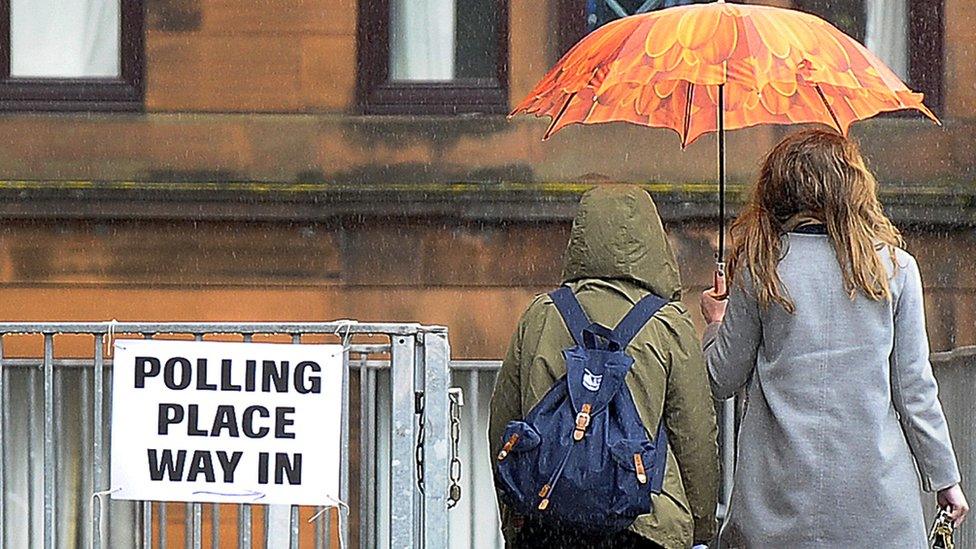
A polling place is the building within which polling stations are set up
The Electoral Commission defines a polling place as a building within which polling stations will be set up. The polling station is the specific location within that polling place in which the voting takes place. This distinction applies across the UK.
However, it seems that in Scotland the terms are used in line with their definitions, while in England polling station is used for everything.
A spokeswoman for the Electoral Commission in Scotland said: "It's just a cultural thing that we tend to refer to them differently across the two countries".
If the UK ends up deciding to remain in the EU, will the SNP cancel their demand for a second referendum on independence for Scotland? - John Whillans, Derbyshire
In short, no. Independence for Scotland is the SNP's main priority.
Scotland voted "No" to independence in 2014 but the SNP's manifesto for the 2016 Holyrood election stated that another vote should be held if there was a "material change of circumstance", such as Scotland being taken out of the EU against its will.
The SNP won that election. The following month in the Brexit vote the UK as a whole voted to leave by 52% to 48% but Scotland voted by 62% to 38% in favour of Remain.
Nicola Sturgeon later announced she wanted to hold a second referendum on Scottish independence to protect Scottish interests in the wake of Brexit.
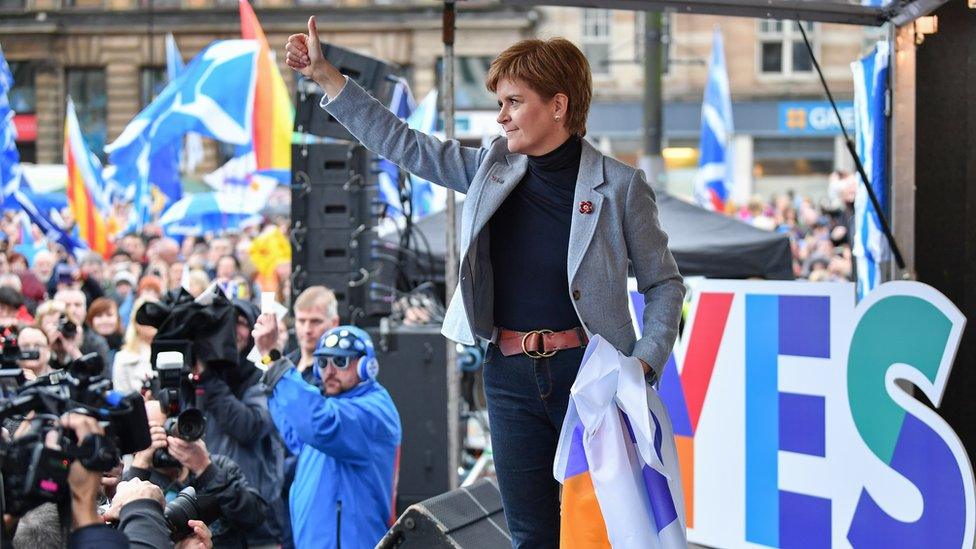
SNP leader Nicola Sturgeon addressed independence supporters at an indyref2 rally in Glasgow's George Square earlier this month
Ms Sturgeon has said she wants to hold indyref2 in 2020.
The Conservative and Liberal Democrat policy is to oppose a second referendum altogether, and Jeremy Corbyn has said Labour would oppose one being held before the next Holyrood election, which is due to take place in May 2021.
So at the moment there is no clear path for the SNP to hold another referendum in the way they want to next year.


Why can't the whole of the UK have a vote on indyref2? - Jock Tomlin, Llanelli
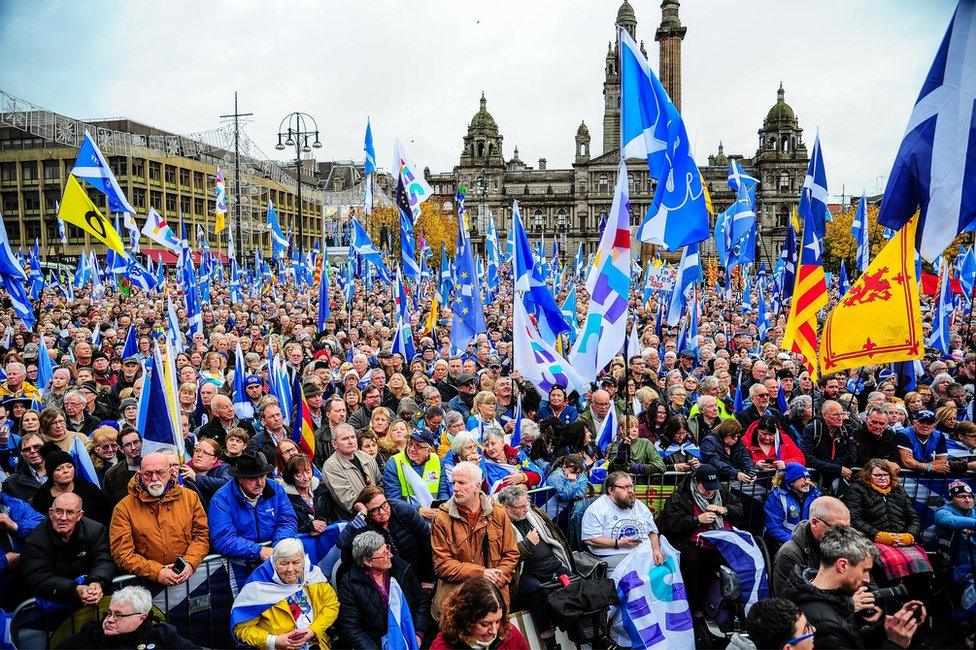
Campaigners want another referendum on Scottish independence
The right to self-determination is an important principle in international law. It was enshrined in the UN's founding document, external.
The Oxford English Dictionary defines self-determination as: "The action of a people in deciding its own form of government; free determination of statehood, postulated as a right."
The SNP position is Scotland's future should be in Scotland's hands.
For the 2014 vote, David Cameron and Alex Salmond, the then-leaders of the UK and Scottish governments, signed the Edinburgh Agreement, external to give Holyrood the power to call the referendum.
Both governments agreed that everyone entitled to vote in Scottish Parliamentary and local government elections in Scotland should be able to vote in the referendum, including EU citizens. It added that it was for the Scottish Parliament to decide whether to extend the franchise to 16 and 17-year-olds, which it did.
In theory, who would be allowed to vote in a further referendum on Scottish independence would be open to negotiations between the UK and Scottish governments.
The Scottish government's position remains that it would be a decision to be taken by the people of Scotland as it was in 2014.
Why does Nicola Sturgeon not sit in the Houses of Parliament? - Andrew Ross, Mirfield
Nicola Sturgeon is the SNP's leader and sits as a member of the Scottish Parliament at Holyrood. She is also Scotland's first minister - the leader of the Scottish government.
She is not an MP and has no intention of becoming one and is therefore not up for election on 12 December.
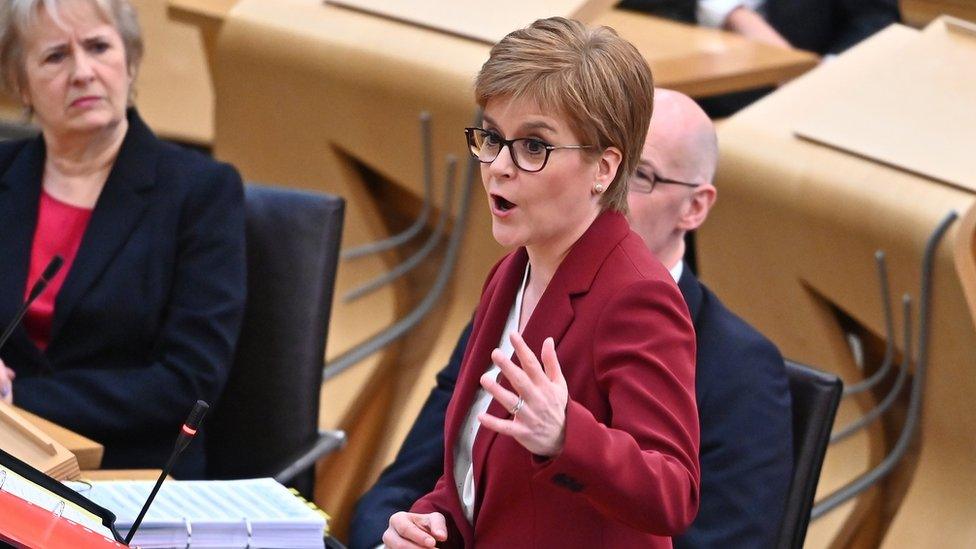
Scotland's First Minister and SNP leader Nicola Sturgeon sits in the Scottish Parliament
The leader of the Westminster parliamentary group of MPs for the SNP is Ian Blackford. He will be contesting the Ross, Skye and Lochaber constituency.
However, Ms Sturgeon's predecessor, Alex Salmond, did sit in the House of Commons while he was SNP leader.
Between 2007 and 2010, Mr Salmond was first minister, external and both an MP, external and MSP, external for constituencies in the north east of Scotland.


What are your questions about the general election? You can let us know by completing the form below.
In some cases your question will be published, displaying your name and location as you provide it, unless you state otherwise. Your contact details will never be published. Please ensure you have read the terms and conditions.
If you are reading this page and can't see the form you will need to visit the mobile version of the BBC website to submit your question.
- Published7 November 2019
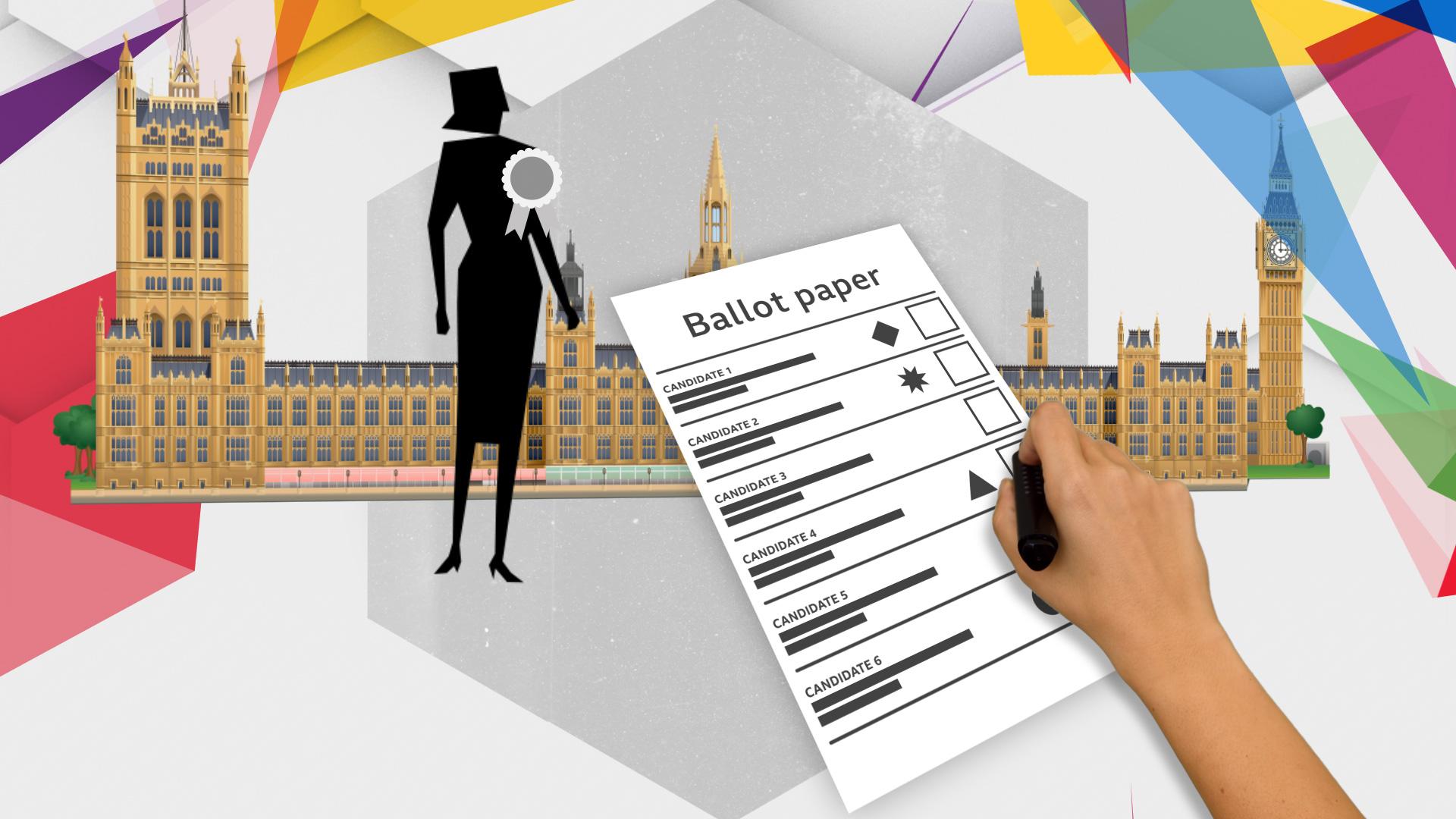
- Published6 November 2019
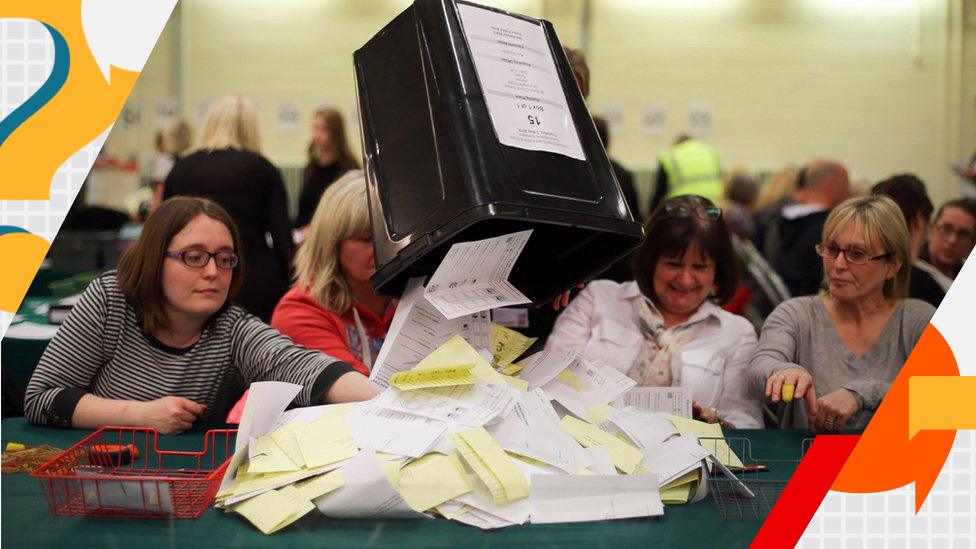
- Published6 December 2019
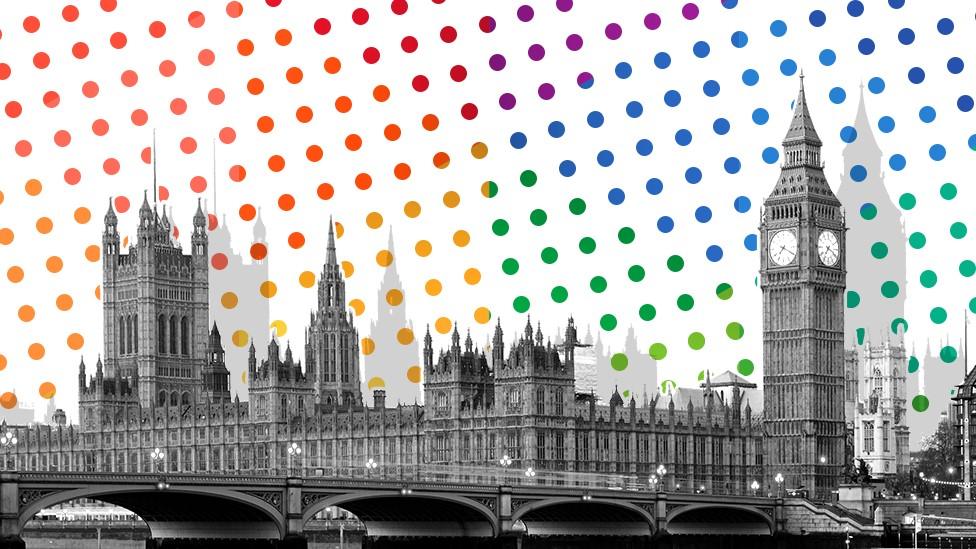
- Published30 October 2019
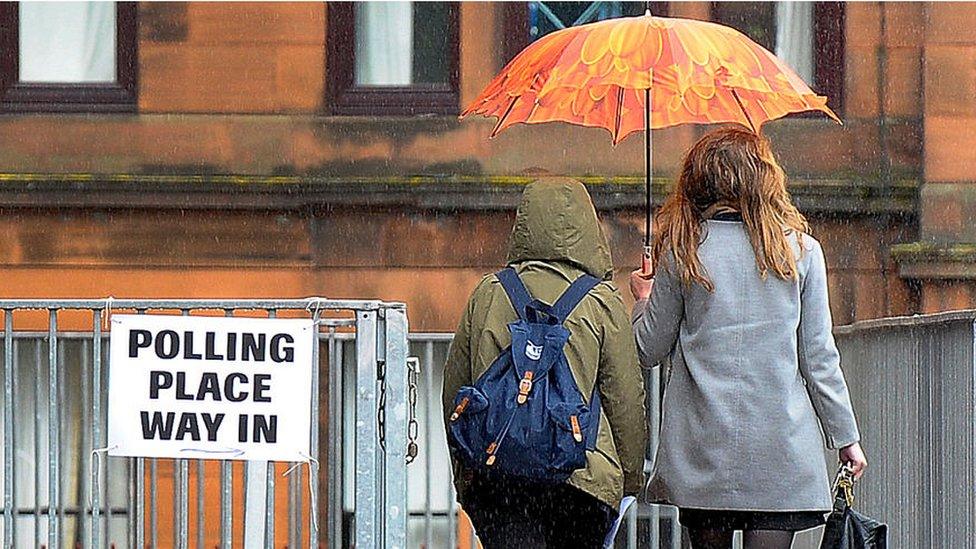
- Published11 December 2019

- Published13 November 2019
